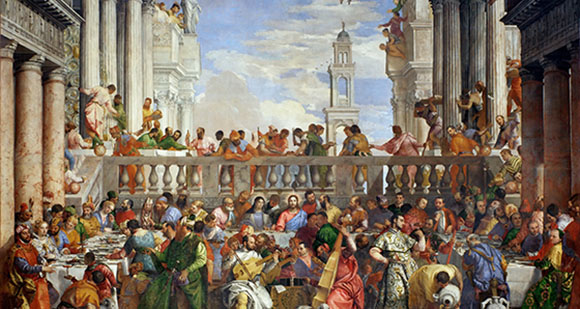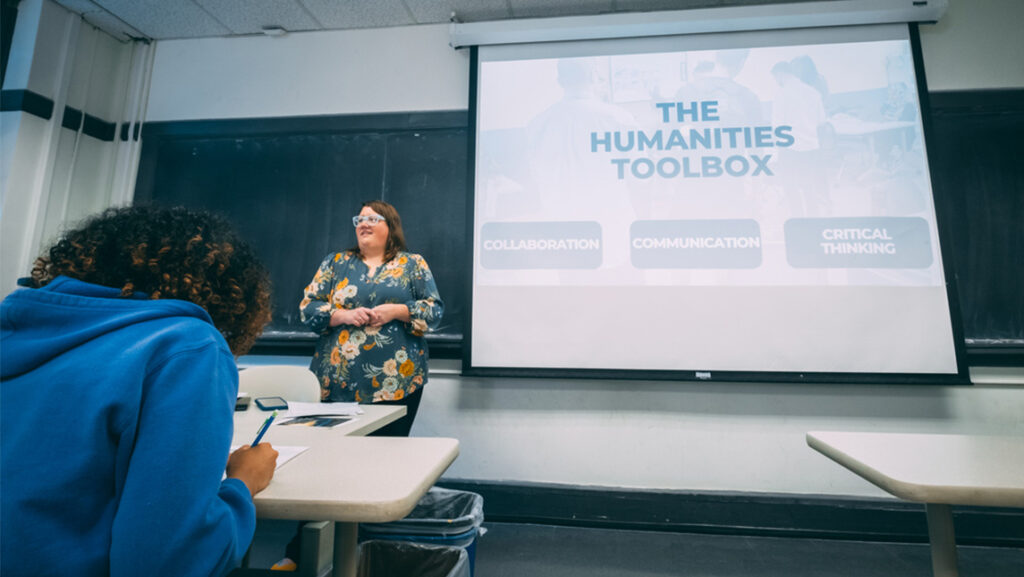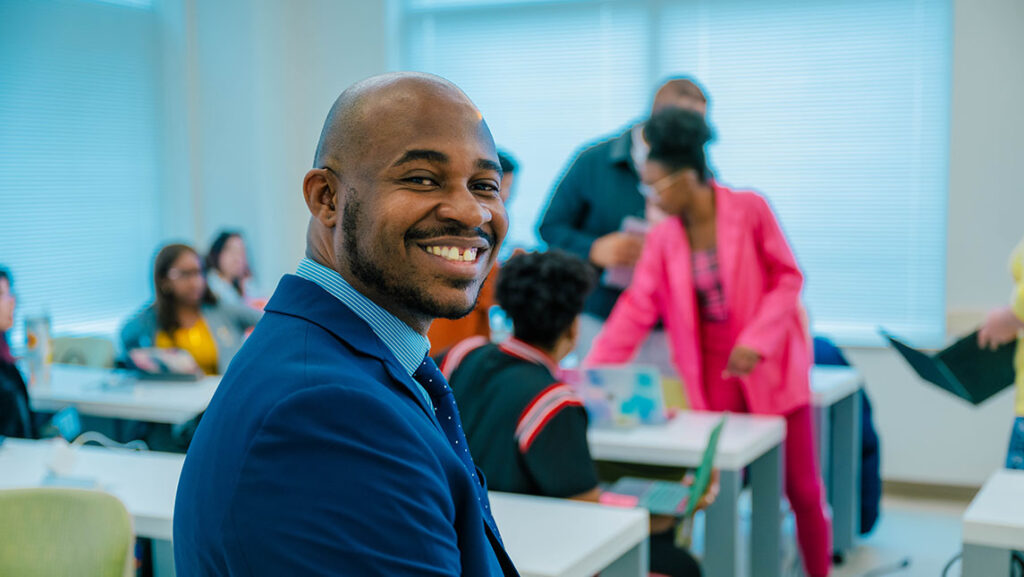
In October 2014, Melissa Elmes, a doctoral student in medieval literature at UNCG, was accepted into the Folger Institute’s spring 2015 seminar. Elmes joins a growing list of UNCG doctoral students and faculty accepted into these highly selective and prestigious Folger programs. The Scale of Catastrophe: Ecology and Transition, Medieval to Early Modern seminar brought Elmes to the Folger Shakespeare Library on Capitol Hill in Washington, DC, nearly every Thursday from January 29 through April 23. She sat down with us to reflect on the experience.
Every year, the Folger Institute attracts hundreds of applications from the top minds around the world to participate in its seminars. The seminars work much like a graduate level course – participants have weekly assigned readings, discussion prompts, and presentations. There is one important difference, though: instead of reviewing existing knowledge, participants create and disseminate new knowledge by discussing it with each other and bringing it back to their respective institutions. In the case of The Scale of Catastrophe seminar, the scholars considered the effects of natural and man-made disasters on individual and community identity.
The experience has been both humbling and inspiring for Elmes. “You’re actually in a room with all of these brains from literally across the world, and you’re producing knowledge,” she says. “Until I took this seminar, I didn’t realize the scale and deep responsibility that is involved with the kind of work that we do.”

“There’s a moment that you have when you’re undergoing a profound shift in the way that your mind actually works,” she adds. “I had that feeling so often during this seminar… I have to wait for the dust to settle before I know how that’s going to affect my intellectual approach to the research that I do.”
Elmes’s doctoral dissertation focuses on feasts and feasting in medieval literature and their role in changing and recreating human and community identity. Feasts were important, according to Elmes, “as sites of creation, seduction, violence and rupture, and recreation, of the individual and the community, alike.”
She was initially unsure of how feasts would relate to a seminar about catastrophes. As she sat down to apply, though, Elmes found interesting connections with her work. While a feast might not happen during a catastrophe, feasts can and often do happen afterwards to demonstrate rebuilding of the community and a reclamation of control over the spaces in which humans interact with one another and the world around them. Elmes’s work in the seminar paired catastrophic events with contemporary instances of community celebration – for instance, the 1666 great fire of London and the 1661 coronation of Charles II – in order to examine recorded human responses to extreme situations. She is now developing a class on the topic.
The experience heightened Elmes’s thinking on mortality, the constancy of change in the human experience, and “the deep importance that western society has placed upon recording, upon memory, upon trying to sustain and guard our experiences.”
“All of this has made me a better listener of both texts and people, a more patient teacher and colleague, and a more nuanced scholar and writer,” Elmes says. “I think, looking back on this experience and reflecting on it as I write, what I am really reading here is the fundamental function and product of the humanities – why, really, they are essential and core to our development of a society that can reflect upon and respond to all of the vicissitudes of mortal being with compassion, humor, and fierce joy, with fear of the unknown tempered by reason and wisdom, and with imagination.”
 Article Author Emma Troxler is a senior at UNCG, double majoring in English and Women’s and Gender Studies. She is a Media and Communications Intern for UNCG’s Office of Research and Economic Development. Her passion for writing about other peoples’ research led her to her current position.
Article Author Emma Troxler is a senior at UNCG, double majoring in English and Women’s and Gender Studies. She is a Media and Communications Intern for UNCG’s Office of Research and Economic Development. Her passion for writing about other peoples’ research led her to her current position.
Through the Research Perspectives blog, students, staff, and faculty share their successes in research, creative activity, and community and economic engagement with each other and the world at large. Interested in contributing? Click here.



